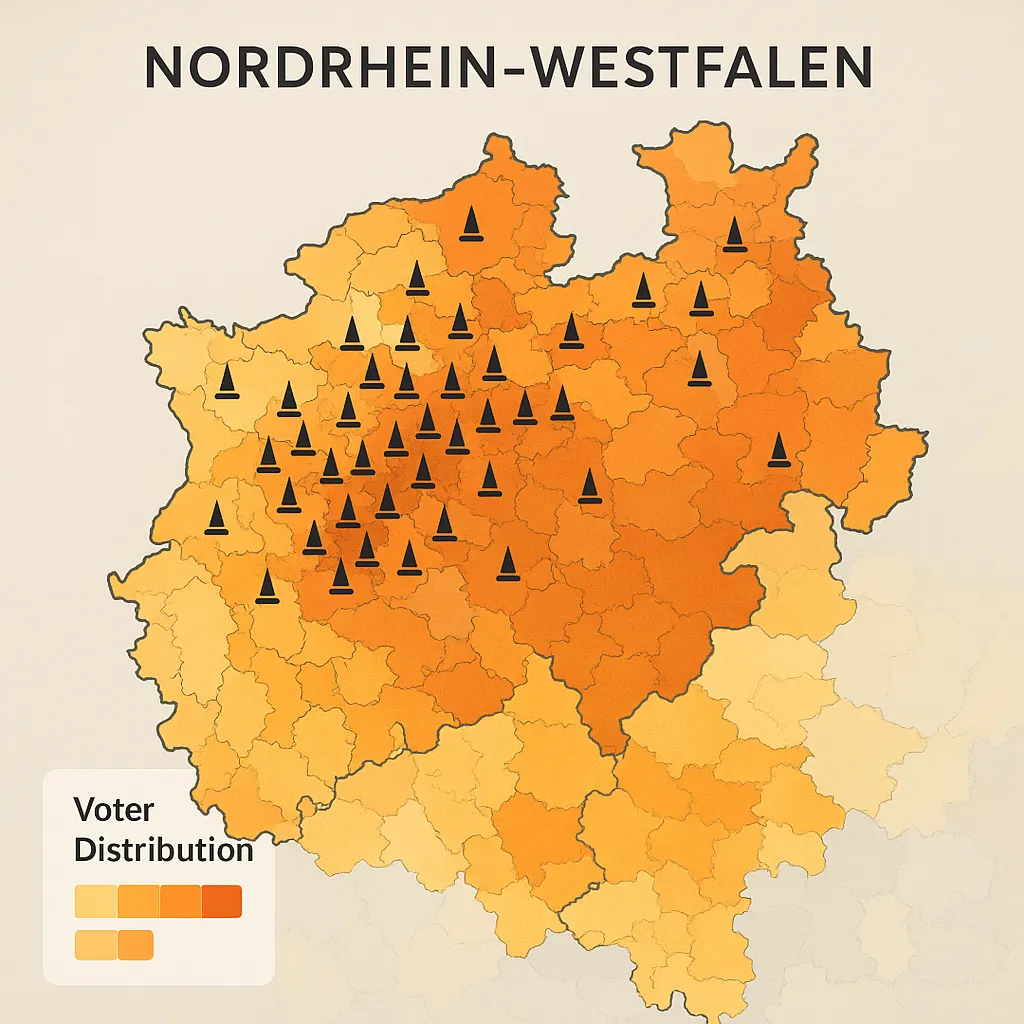Voters in Germany’s Most Populous State Head to Municipal Polls

Residents of North Rhine-Westphalia cast ballots Sunday in municipal elections seen as a barometer of public sentiment toward the federal government. The vote covers mayors and local councils in 396 towns and districts, with results shaping policy at the municipal level and offering insight into Chancellor Friedrich Merz’s first test since May.
Nut Graf With 13.7 million eligible voters, Sunday’s municipal contests in North Rhine-Westphalia will determine local leadership for the next five years and provide the first major gauge of national political currents since the CDU’s return to power.
Election Scope and Stakes
- Polling stations opened at 8 a.m. local time across 396 municipalities, including district and integration councils, as well as the Ruhr Regional Parliament.
- Approximately 20,000 seats are up for grabs, from mayors and lord mayors to district councillors and municipal representatives.
Major Parties and Trends
- Christian Democratic Union (CDU): Historically dominant, seeks to defend its position after national vote share slipped from 28.5% to 26% in recent polls.
- Social Democratic Party (SPD): Junior partner in federal coalition, aiming to shore up support amid lackluster performance.
- Greens: Building on record gains from 2020, targeting additional mayoral offices beyond Aachen, Bonn and Wuppertal.
- Alternative for Germany (AfD): Riding a surge in national poll ratings (around 25%), looking to translate momentum into local seats.
Implications for Federal Politics
Analysts view the municipal outcomes as an early referendum on Chancellor Merz’s leadership. A strong showing by the CDU and its coalition partners could reinforce the government’s mandate, while significant AfD gains would signal growing public discontent and raise pressure for course correction in Berlin.
Categories
Autos and vehicles Beauty and fashion Business and finance Climate Entertainment Food and drink Games Health Hobbies and leisure Jobs and education Law and government Other Politics Science Shopping Sports Technology Travel and transportationRecent Posts
Tags
Archives
08/19/2025 (3) 08/20/2025 (40) 08/21/2025 (27) 08/22/2025 (22) 08/23/2025 (4) 08/24/2025 (21) 08/25/2025 (30) 08/26/2025 (24) 08/27/2025 (29) 08/28/2025 (16) 08/29/2025 (9) 08/30/2025 (13) 08/31/2025 (17) 09/01/2025 (167) 09/02/2025 (124) 09/03/2025 (149) 09/04/2025 (112) 09/05/2025 (72) 09/06/2025 (169) 09/07/2025 (162) 09/08/2025 (150) 09/09/2025 (176) 09/10/2025 (194) 09/11/2025 (194) 09/12/2025 (186) 09/13/2025 (207) 09/14/2025 (159) 09/15/2025 (175) 09/16/2025 (198) 09/17/2025 (196) 09/18/2025 (196) 09/19/2025 (207) 09/20/2025 (129) 09/21/2025 (4)